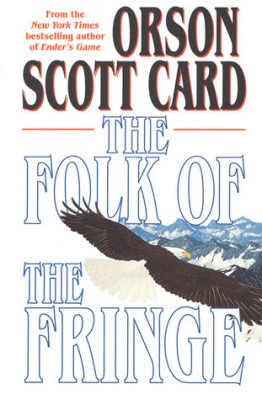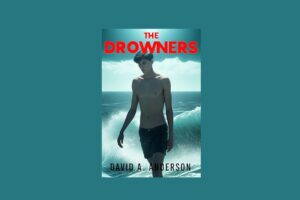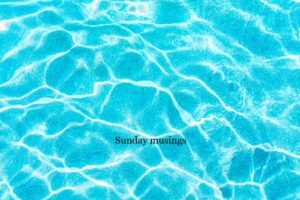The Fringe by Orson Scott Card
Despite my general opposition to Orson Scott Card as a human being, as an author I find him compelling and astute – which is not how I want to feel about a homophobic nutter but that is by the by.
The Fringe is a short story from his collection The Folk of the Fringe that, although connected to the other stories of the collection, also works as a standalone post-apocalyptic tale.
It is set in a small town outside the Fringe, an area of nothingness out in the sticks of the Utah desert. Carpenter, a teacher with severe cerebral palsy who is unable to walk or talk, is listening to his student LeVon read out a book report, the punishment for a previous misdemeanour.
LeVon is cocky and makes a mockery of his book report but does so in a way that shows he has in fact read and understood the story. He acts as both the rebel and the clown and is revered by the rest of the class, but he is smart and Carpenter is frustrated by his wasted intelligence. However, there is something more to Carpenter’s anger for LeVon than mere teacherly anguish. After the boy has finished his report and sits back down, Carpenter plays a saved lecture with his voice synthesiser on the recent history of their community and its shared ethics, all the while seething at his most troublesome student.
The lecture explains that before the students’ parents were born, there was an environmental disaster that caused masses of land ruin, devastation and death, pushing civilization back into simpler living conditions where they were forced to grow and forage for food in order to survive. A new community was eventually formed dedicated to rebuilding homes, farming and creating a new life for the remaining survivors. As their town progressed over the years, they began to trade their crops with the people of the neighbouring city. Everyone within the community shared the profit equally and although steady progression was being made, some inhabitants of the town began to steal crops from the stores to sell them secretly on the black market. The families that stole the crops could eventually afford to send their children to the city where they could live better lives than those remaining in the Fringe. This was a huge issue for the community that quickly became a punishable offence.
The lecture purposefully hones in on the detrimental and immoral consequences of black marketeering. Carpenter’s focus continually falls to LeVon, Pope and Kippie, three boys in the class whose fathers have stolen from the crop stores. Carpenter had recently told the marshals about this and knows that after class they will be arrested for their crimes against the community. Life will consequently be a strain for their families and the boys will have to drop out of school to help as their family struggle to survive, but Carpenter is unmoved. The town will also discover that it was Carpenter who told the marshals, but he doesn’t care. He tells himself he is fighting for the peace and moral standing of the community.
As he leaves for home in his electric wheelchair, Carpenter spots the Pope boy’s father, the local bishop, be dragged out of his house as he is arrested. The family are clearly distraught but, although Carpenter forces himself to acknowledge what he has done, he ignores their cries and continues with his journey home.
Later that afternoon Pope, LeVon and Kippie break into Carpenter’s home. They drag him out in his wheelchair to the back of LeVon’s car and drive out of the town into the depths of the Fringe where they plan to punish him for their fathers arrests. They toy with him, telling him they are going to throw him into the steep dry riverbed (known as a wash) unless he speaks with his ‘real’ voice without the voice synthesiser. Due to his disabilities, his voice sounds like an animal howl and he refuses to allow them to belittle him. They eventually take him to the bottom of the wash and ask him to speak once again, but he refuses, so leave him awaiting the start of a three-day long rainfall, which is an assured occurrence because of the environmental disaster, and he will drown as it fills the wash.
As the boys leave, Carpenter begins to dwell on his jealousy of the boys and their able limbs. He is disgusted with his own body as it is stopping him from saving himself, which confuses him as for years he wished for death to alleviate him from his useless body. But will he figure out a way to save himself from drowning? Or will the boys realise what they have done and return to rescue him?
This short story is completely gripping from beginning to end. Seeing the world from Carpenter’s point of view was especially fascinating; on the one hand he is incredibly intelligent, observant and moral, but on the other hand he is bitter, self-loathing and spiteful. Card wrote of the perspective of a disabled character with real finesse, his emotions being suitably raw yet not hyperbolically so.
For all his intelligence the character is fuelled by very basic and primal desires, so it is interesting to read his rage-filled thoughts when his outer self cannot express them. This lack of physical emotion makes the rest of the community suitably uneasy, and in a way his lack of mobility makes his emotions ineffectual as they cannot be witnessed. However, as anything Carpenter does say or do has to be calculated, it also makes his intent much more meaningful. The act of telling the marshals about the stealing, for instance, is more spiteful than the actual stealing itself as the fathers’ were acting on impulse for the good of their children. Also, as the boys highlight to him, everyone in the town steals, it’s just Carpenter who is unable to.
Although they leave Carpenter to die, the three boys are not the evil miscreants one assumes them to be. They are typical teenagers: angry at being wronged and not having the capability to do anything about it, frustrated at the prospect of responsibility and the restrictions of freedoms and concerned by the world around them yet wanting to be ignorant of it. They reminded me somewhat of the boys in Stand By Me as their innocence becomes tainted by a disturbing event, even though the event was actually caused by them. The difficulties they would face with the absence of their fathers to me made their actions understandable, not despicable.
Although I found the ending to be relatively weak, it didn’t retract from the short story as a whole. The Fringe was full of unrelenting moral and emotional questions and as the characters felt like fully-formed people, not archetypes, it really added to the intenseness of the plot and to its controversial topic. Card has such a wonderful writing style that is capable of adding real complexity and depth, especially when portraying Carpenter’s jealousies:
Carpenter hated them for that, for all the differences in the world, for the children who had legs and walked nowhere that mattered, for the children who had voices and used them to speak stupidity, who had deft and clever fingers and used them to frighten and compel the weak.
It is rare to get such an affecting character-based story in science fiction and I really want to read the rest of Folk of the Fringe, but I am hesitant. If I am disturbed by an author’s personal opinions and actions, am I not morally obligated to refuse to read their work? Or should the author and the person be treated entirely separately?




Leave a Reply